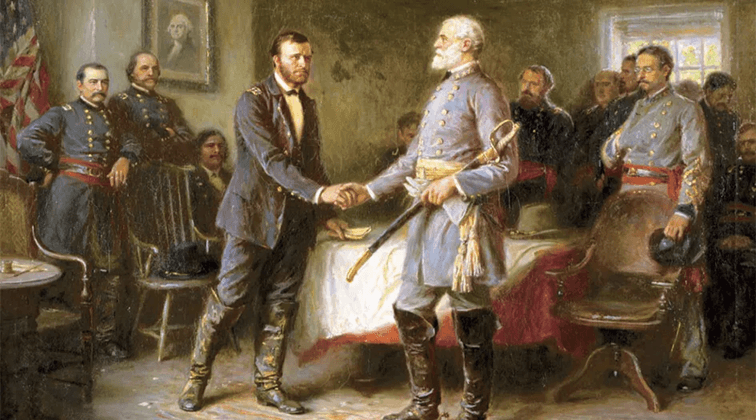From the Fourth Floor of Toronto’s Library

Your essayist has a new job on the fourth floor of Toronto’s reference library, working in languages and literature. Hence, the new title of this feature. Also, in future columns, we will likely lean a little more on L&L, especially linguistics, though not forgetting Chesterton and his crowd.
Who could forget GKC?
A close friend has just read The Devil in the White City: murder, magic and madness at the fair that changed America, by Erik Larson.
TDitWC is a “non-fiction” (a novelized fact) account of the Chicago World’s Fair of 1893, the creation of which had much in common with the creation of legislation and sausages.
Mr. Larson crosscuts this historical event with the history of Dr. H. H. Holmes, America’s first serial killer, a homicidal insurance swindler who operated at the same time, just a few miles from the fairgrounds. We suspect Mr. Larson is trying to be ironic. Holmes found many of his victims – unwary young women – in the crowds that crammed Chicago for the event. He even built a sort of hotel, with secret rooms and vaults, to lure his victims.
Mr. Larson’s book received got a good deal of praise (and sales), was a finalist for the National Book Award, and actually won the Edgar Award for best crime non-fiction, and winning an Edgar is not easy.
While we were talking about TDITWC, my friend asked “Why is it that we like to read about this stuff?” Meaning true-crime, and perhaps also crime fiction generally.
It’s a nice question.
Socrates, a reasonable man if there ever was one, might have suggested that perhaps we ought indeed not to enjoy this kind of thing (stock fraud artists, Nazis and men in hockey masks with long knives). It doesn’t make sense. After all, isn’t nice not only, well, nicer than nasty, but in a real sense more interesting? Evil, after all, is nothing in itself; it is no substance, it has no proper existence. The rotten apple is parasitical, as it were, to the perfect apple.
Yes, Socrates, but it doesn’t work like that. People love true crime. Ordinary people kept Police Gazette going for over a hundred years. As public librarian, we have watched true-crime fly off the library shelves. It is not as popular as cookbooks, but it’s close. Perhaps people ought not to be interested, but they are, they are.
Now . . .what says Aristotle? Admittedly, Aristotle is not always right, but ninety-nine times out of a hundred he is the right place to start.
Speaking generally, poetry seems to owe its origin to two particular causes, both natural.From childhood men have an instinct for representation . . . And then there is the enjoyment people always get from representations. What happens in actual experience proves this, for we enjoy looking at accurate likenesses of things which are themselves painful to see, obscene beasts, for instance, and corpses…
Poetics 1448b3–b14. Translated by W. Hamilton Fyfe.
The master of those who know puts the cause down to an instinct among humans for imitation, an aesthetic impulse, and a desire to learn.
Well, that is true enough as far as it goes. We do have an aesthetic sense, and we are most of us curious.
The aesthetic impulse, however, seems a force that operates not very strongly, on the whole.
And more importantly, the world is full of things to imitate and things to learn. Why spend time with a mimesis of H.H. Holmes rather than a saint or a butterfly? And what is there to learn, really, from a criminal? Most of them are stupid, cruel, and self-centered, all very limited qualities.
A better answer might be that what we enjoy in these cases is not the criminality, the vice in itself, but the virtues of the villain.
Virtues?? Of course. No outstanding wicked deed can be done without virtue. Where would Genghis Khan have been without leadership, physical courage and boundless energy? Even Holmes displayed a low-level ingenuity and enterprise. Any villain of note has to have virtues he can misdirect. No one writes a book about Fred Brown, notorious thief of office supplies, unless of course he has stolen rather a lot of supplies.
But this runs into the same problem. Why read about the spectacular misuse for EVIL (we’re looking at you, Lex Luther) of Powers that Might Have Been Used for GOOD?
The answer is a little melancholy, and its implications are perhaps unflattering.
The proper use of any virtue (any virtue, from a bent for mathematics to the ability to kick a soccer ball very well) is impossible without setting that virtue in a net, sometimes a complicated net, of times, circumstances and intentions. The transcendent genius of Pelé involved continual awareness, consideration and judgment of every other player on the field. Even theoretical physics will turn to ashes unless it is directed to a final end. Consider the Manhattan Project. In a larger sense, the life and acts of every human being, taken as a whole, if they are not to be pointless, must have a . . . point, that must be directed to a purpose beyond its being.
Set this way, it doesn’t sound easy, and a great deal of the time it isn’t. The practice amounts to prudence, which is difficult, grounded in noesis, which is harder. It tangles us in limitations and uncertainty. It is so difficult that even the most prudent of us can only take into consideration about 10% of the factors involved in any decision.
How much more pleasant it is, knowing this, to involve ourselves, if vicariously, with displays of power and virtues unfettered by petty obligations and difficult calculations, as direct as a thunderbolt.
How like a god, indeed!
Alas alas, the sad fact is man is not so much a rational animal as an animal with a capacity for reason. We are capable of the pleasure of noesis, but to reach it is not easy and we often find it a thin wine. There are many more concrete enjoyments. The house of reason, as Bernard Lonergan remarks somewhere, is a chilly home.
That is bad enough.
There is another, even less edifying possibility.
Who has not indulged in righteous indignation? Feels good, as Mr. Brown said. We wouldn’t chop up people, like the people we are reading about, and put them in trunks. Certainly, if it had been us, we wouldn’t have put all those human beings, people we didn’t even know, into boxcars.
As Valéry remarks, there is nothing lower than a desire to be the one who is right. Such self-approval is not only undignified but dangerous.
The wise woman or man knows about human evil in general (they learned it all in the grade seven school yard, or grade 3) and current particulars may be noted (as an ongoing reminder of the evil inclination in our own hearts) in the newspapers. Beyond that, the wise woman or man (but who is wise?) has other things to do.
By the way, and in conclusion, my friend reports that the really interesting character in The Devil in the White City is not Holmes, who comes across as insipid (cruel, homicidal, charming but insipid). The detective who nailed Holmes is more interesting, the men who built the fair are more interesting, Buffalo Bill, who wasn’t invited but who came anyway, is more interesting, and most interesting of all is one Sol Bloom, who is in wiki and worth looking up. Mr. Bloom was a caution.




